Coconut Palm, a brand of coconut juice widely recognized across China, has caused controversy over its use of vulgar language, false claims and sexualized imagery in its recent promotional campaign.
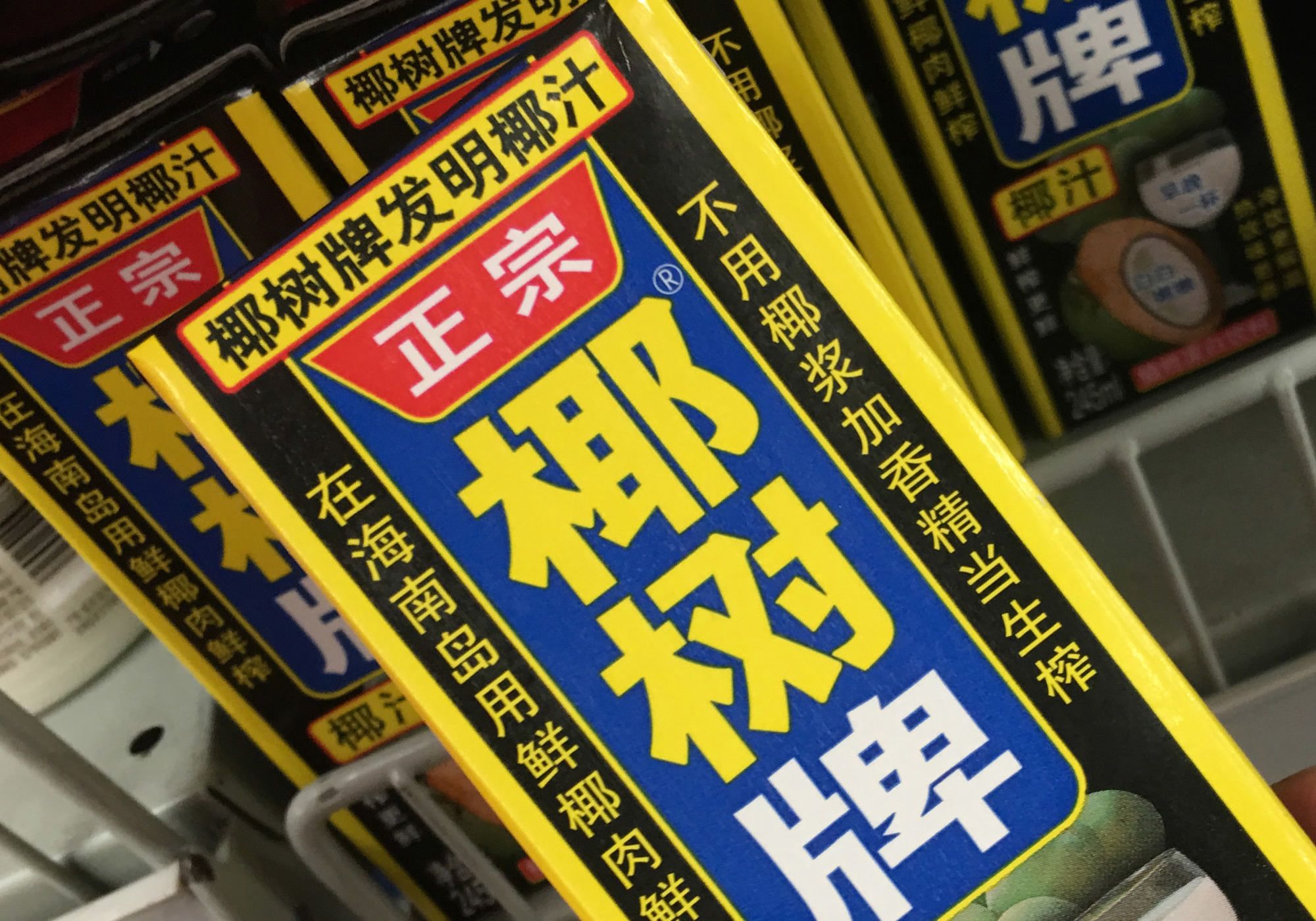
CFP Photo
One of its TV commercials shows a woman wearing a tight low-cut white T-shirt and blue pair of shorts saying “A can of Coconut Palm from the Coconut Palm Group will give you a graceful figure," while standing with the coconut drink in her hand. In another advert, another buxom lady in a black swimsuit says "White, tender and curvy," a slogan that is much more explicit in linking the beverage with having bigger breasts. One of the commercials also features women with big bosoms jumping up and down, leaving little to the imagination.
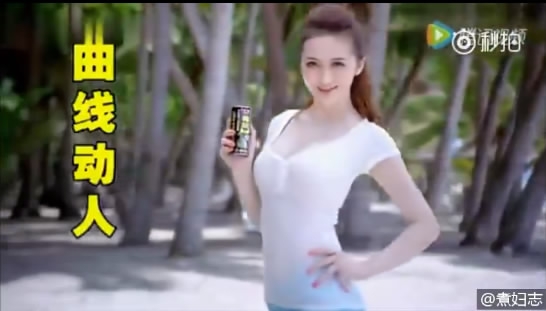
Screenshot of Coconut Palm Group's TV ad
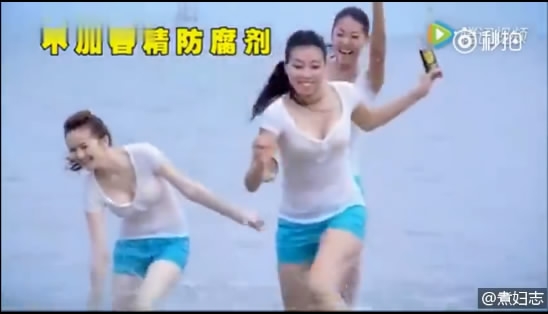
Screenshot of Coconut Palm Group's TV ad
However, the group's campaign to link its drink with its ability to give a bigger bra size does not only end with TV, but also on its official website. The top banner on the homepage shows a woman photoshopped beyond recognition, wearing a tight top while holding aloft her can of coconut juice.
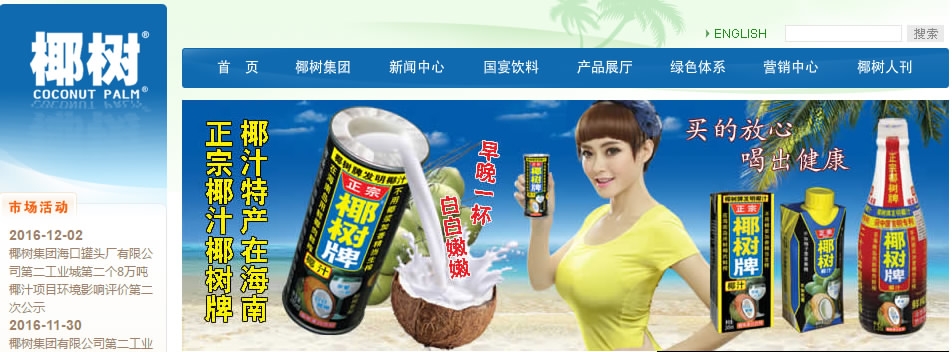
A screenshot of the Coconut Palm Group's official website
“Coconut juice is only a beverage, and does not function as any kind of nourishing product” said Jiang Zhuoqin, Director of the Department of Nutrition at Sun Yat-sen University in the southern Chinese city of Guangzhou, dispelling the myth the promotional campaign is trying to get across.
A report from Hong Kong-based Oriental Daily is also cited by the group’s website, saying “Drinking a lot of coconut juice can give women larger chests.”
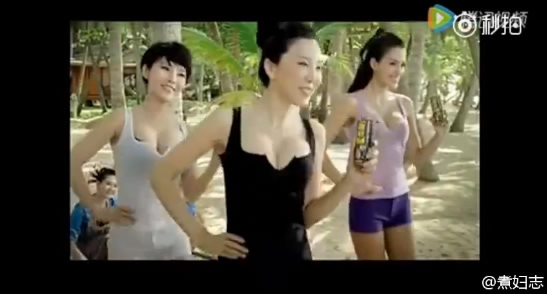
Screenshot of Coconut Palm Group's TV ad
However, a member of staff with the Coconut Palm Group who did not disclose their name told Beijing News that the group had never conducted research on links between its products and breast enlargement.
“We saw the report on coconut juice giving women larger breasts in a Hong Kong newspaper from 1997, so the manager decided to use this as the focal point of our adverts,” said another staff member who gave her surname as Lin.
Coconut Palm Group’s advertising appears to be offensive on more than one front- false advertising, vulgarity and use of sexualized imagery. Yan Jiabin, a lawyer based in Shanghai, said that these advertisements had violated the country’s laws on advertising, which stipulates that any advertisement should display content healthily.
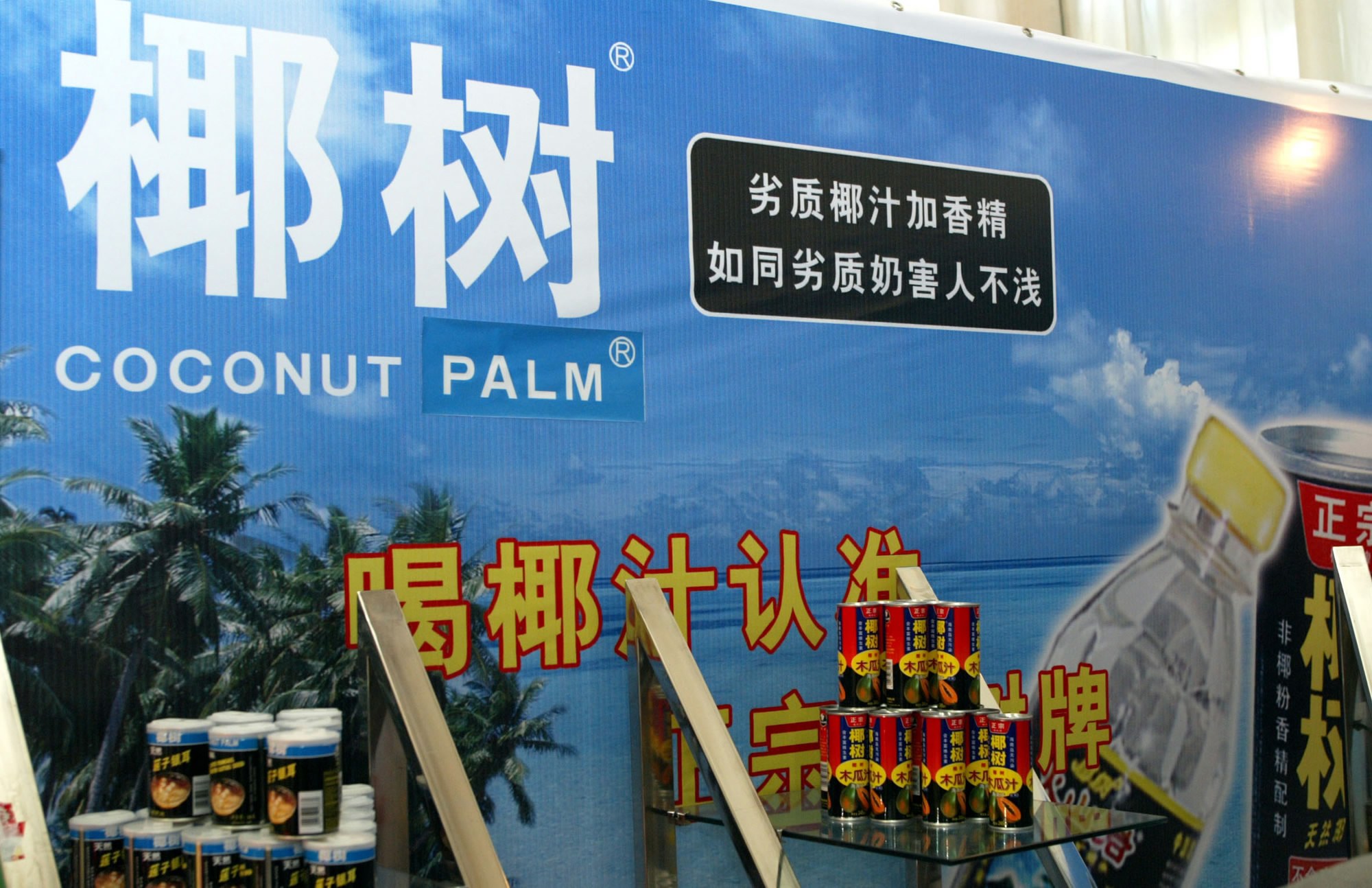
CFP Photo
Established in 1956, the Coconut Palm Group grew into the country's largest producer of this kind of drink by 1986.
Nevertheless, the group’s advertising strategy has long been queried. In 2008, the group was fined 20,000 yuan (approximately 2,900 US dollars) for conducting a deceitful advertisement campaign. One year later, due to unacceptable language used in a print advertising campaign in Haikou city, Hainan Province, the group was fined 1,000 yuan (around 145 US dollars) and not allowed to proceed with the ad.

Screenshot of Coconut Palm Group's TV ad
With the adverts causing great discussion online, some netizens even published a compilation of the group’s videos, with many commenting on the ads.
“So, this can be drunk by girls only?” questioned @Guapijitashou.
“This ad is better than underwear ads,” commented @Azhilaohu_









